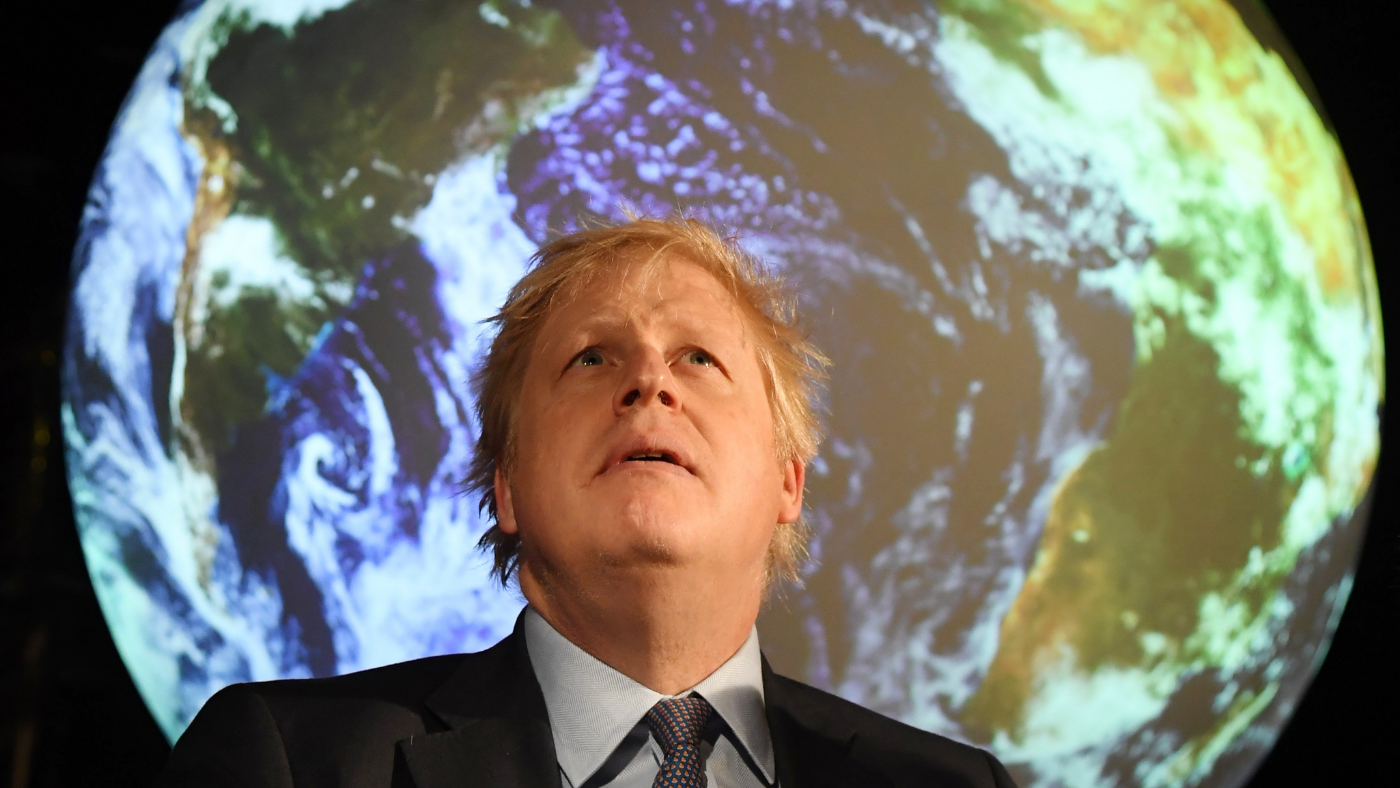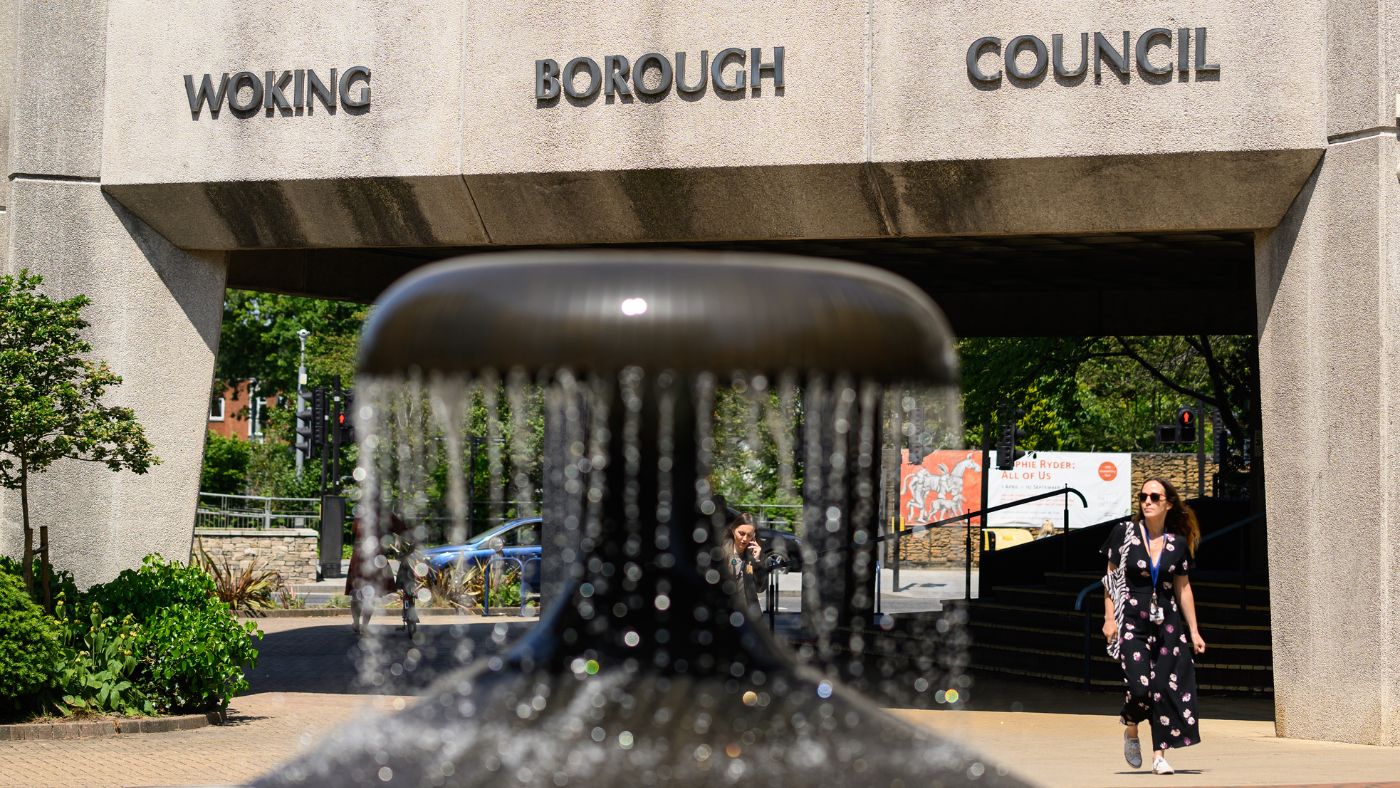Does the UK need a referendum on climate change pledges?
Critics say net-zero target has been imposed by ‘elites’ without electoral mandate

A free daily email with the biggest news stories of the day – and the best features from TheWeek.com
You are now subscribed
Your newsletter sign-up was successful
A large proportion of the British public are in favour of a referendum on the government’s net-zero proposals, according to a new poll by YouGov.
Some 42% of adults said they supported a vote on the plan, while 30% opposed it, and 28% did not declare a preference. The Telegraph noted that when the “don’t knows” were excluded from the results, a majority of 58% wanted a public vote on the issue.
A ‘new religion’
The Week
Escape your echo chamber. Get the facts behind the news, plus analysis from multiple perspectives.

Sign up for The Week's Free Newsletters
From our morning news briefing to a weekly Good News Newsletter, get the best of The Week delivered directly to your inbox.
From our morning news briefing to a weekly Good News Newsletter, get the best of The Week delivered directly to your inbox.
The government’s Energy White Paper details the Government’s long-term vision for achieving its net-zero target by 2050, including an increased movement towards renewable electricity such as offshore wind and greater use of green technology.
Among other strategies, the paper calls for net-zero-carbon buildings, energy efficiency, and motorists replacing cars with electric vehicles.
However, some argue it does not have a democratic mandate.
Writing for The Telegraph, Allister Heath said a referendum is essential because “the political elite is imposing a revolution,” while treating voters like “naughty children” and “apathetic imbeciles”.
A free daily email with the biggest news stories of the day – and the best features from TheWeek.com
He said the “vast majority, at least in wealthy nations, wants to improve the environment, reduce pollution, bolster biodiversity, treat animals better and prevent man-made catastrophes”.
However, he argued, “that is where the near-universal consensus ends” because “the details of how to proceed are explosively contentious, and require democratic assent to be legitimate”.
He concluded that “the green challenge is too important, its implications too dramatic, to be left to an establishment that has embraced net zero as if it were a new religion”.
Earlier this year, Swiss voters rejected a proposed new climate law in a referendum by 52% to 48%, leading to calls for a similar poll here. At the time, Swiss environment minister Simonetta Sommaruga said that the defeat would make it “very difficult” for Switzerland to reach the goal of net zero emissions by 2050.
The new YouGov survey was commissioned by CAR26.org, a controversial new campaign group which claims that “there is serious doubt that CO2 has a significant negative impact on the climate”.
‘Action not talk’
Joseph Lewis, of the Institution of Environmental Sciences, said the suggestion of a referendum on the issue is a “sad” reflection on the UK.
Speaking to GB News, he said there are “better ways” to “have the conversation” on climate change than a “yes or no” ballot, and said that conversation must move beyond “if we should do things” to address climate change, to “how we do those things”.
Only then, he added, can we “resolve real concerns about the way in which we do it, and whether measures are right or not”. He concluded that we need “less talk and more good action”.
The Tony Blair Institute’s Tim Lord rejected the idea that “elites” are behind the drive for climate action. He said “there is irony in this – as it is the poorest who will be most severely affected by unconstrained climate change”.
Lord agreed that the net-zero target was introduced in the summer of 2019 with minimal debate in the Commons and no mention of the plan in the 2017 election – but it was included in the Conservative manifesto ahead of the December 2019 election.
While delivering net zero is a “complex task” that “cannot be achieved without public support for both the overall goal, and the policies required to get there”, this “cannot mean everyone supports every measure”, he said. Consent must be drawn from a broad base and “net zero has to be based around a politics of unity, not division”.
-
 How the FCC’s ‘equal time’ rule works
How the FCC’s ‘equal time’ rule worksIn the Spotlight The law is at the heart of the Colbert-CBS conflict
-
 What is the endgame in the DHS shutdown?
What is the endgame in the DHS shutdown?Today’s Big Question Democrats want to rein in ICE’s immigration crackdown
-
 ‘Poor time management isn’t just an inconvenience’
‘Poor time management isn’t just an inconvenience’Instant Opinion Opinion, comment and editorials of the day
-
 Woman accidentally puts nan in washing machine
Woman accidentally puts nan in washing machineTall Tales And other stories from the stranger side of life
-
 Office Christmas parties give us sleepless nights
Office Christmas parties give us sleepless nightsTall Tales And other stories from the stranger side of life
-
 Would North Korean weapons tilt the war Russia’s way?
Would North Korean weapons tilt the war Russia’s way?Today's Big Question Putin wants to boost ‘depleted stocks’ but Pyongyang’s arms may be in poor condition
-
 What went wrong with the German economy?
What went wrong with the German economy?Today's Big Question ‘Deep-rooted’ and ‘knotty’ problems threaten return of ‘sick man’ label
-
 Why are so many local councils on the brink of bankruptcy?
Why are so many local councils on the brink of bankruptcy?Today's Big Question Inflation, underfunding and growing demand for services has put pressure on local authorities at the worst time
-
 Bangladesh dealing with worst dengue fever outbreak on record
Bangladesh dealing with worst dengue fever outbreak on recordSpeed Read
-
 Glacial outburst flooding in Juneau destroys homes
Glacial outburst flooding in Juneau destroys homesSpeed Read
-
 UFO hearing: why is Washington suddenly embracing aliens?
UFO hearing: why is Washington suddenly embracing aliens?Today's Big Question Speculation of extraterrestrial life has moved from ‘conspiracy fringe’ to Congress